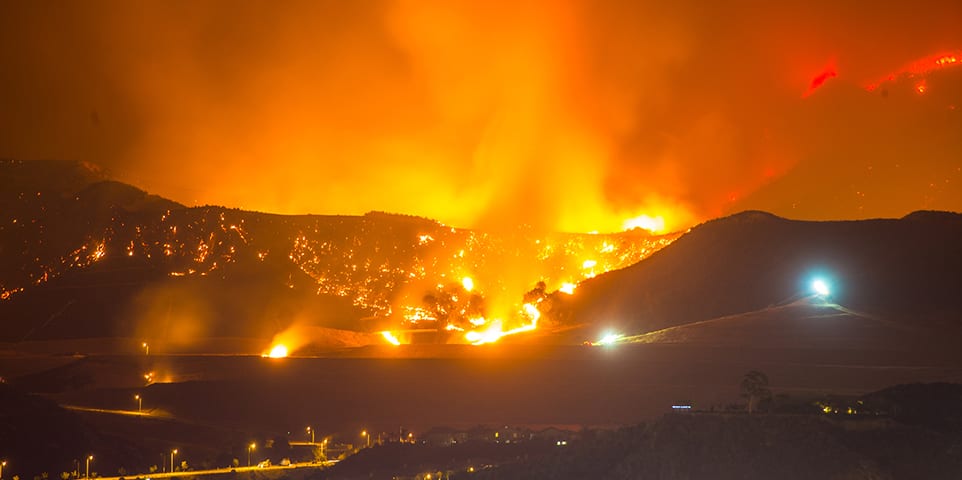Wildfire season has kicked off for most of the United States. Communities are already seeing impacts, like reduced energy measures; some energy companies have been forced to shut down facilities for safety reasons. With millions of miles of transmission pipelines stretching across the country, owners and operators of our nation’s pipelines plan and prepare for every conceivable emergency so if there’s a wildfire nearby, pipeline operators know what to do to protect the safety of the community, employees, and infrastructure.
Wildfire Season Realities
According to Verisk’s 2017 Wildfire Risk Analysis, 4.5 million U.S. homes were identified at high or extreme risk of wildfire, with more than 2 million in California alone. Losses from wildfires added up to $5.1 billion over the past 10 years.
As many as 90 percent of wildland fires in the United States are caused by people, according to the U.S. Department of Interior. Some human-caused fires result from campfires left unattended, the burning of debris, downed power lines, negligently discarded cigarettes, and intentional acts of arson. The remaining 10 percent are started by lightning or lava.
How Pipelines Survive
Pipelines and related facilities are designed and maintained to meet all safety standards. Isolation or “block” valves are used to shut off sections of the pipeline if or when a fire gets close. Emergency shut down protection procedures are in place at every facility to isolate them from the mainline in case of a fire. These procedures include automatic fire detection systems.
Vegetation and brushing programs are key to damage prevention; underground pipeline facilities are at lower risk from forest fires. However, keeping rights-of-way (ROWs) clear of major vegetation means less fuel if a forest fire passes over and also provides visual access for aerial patrols. Pipeline operators must also ensure their above-ground facilities are surrounded by non-flammable materials, such as gravel.
All pipeline companies have comprehensive emergency response plans and conduct emergency response exercises to prepare for a variety of situations, including a fast-moving wildfire.


